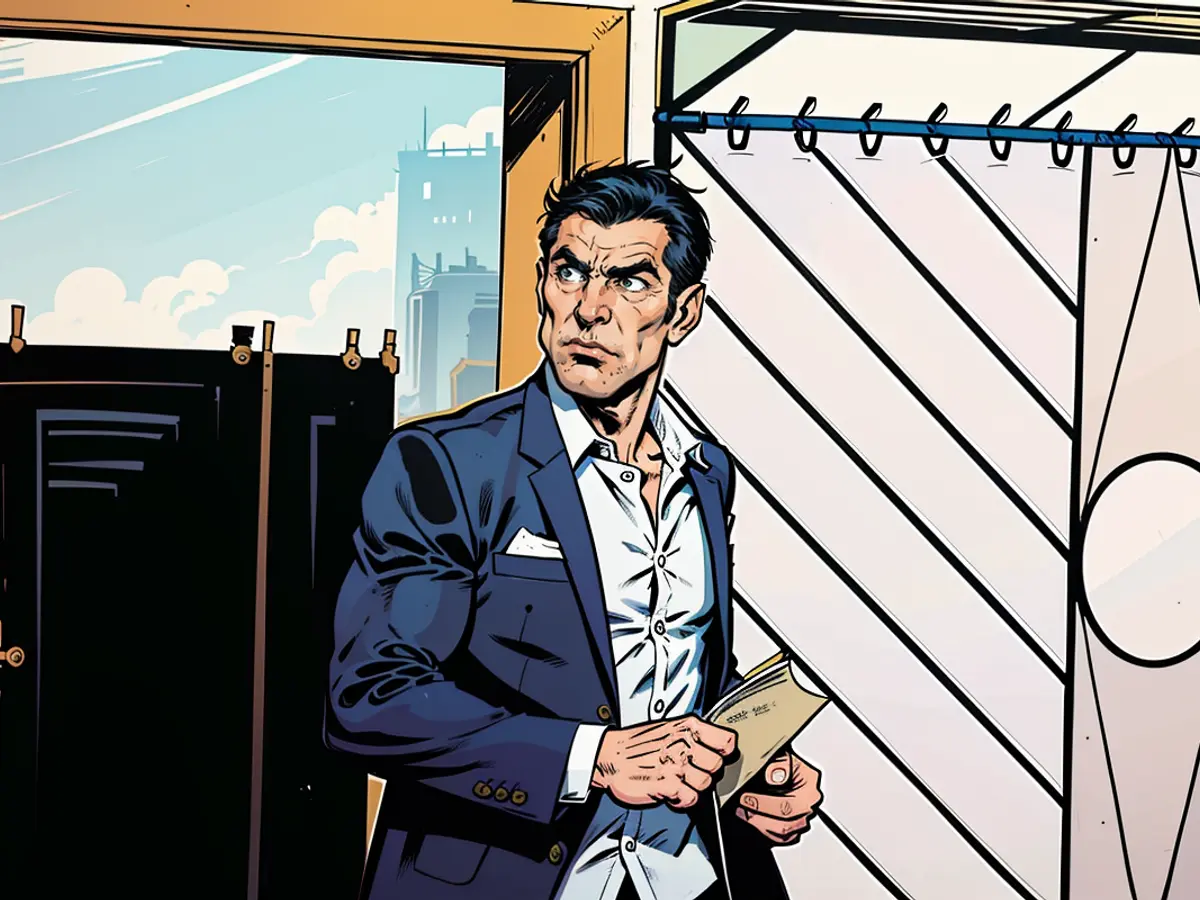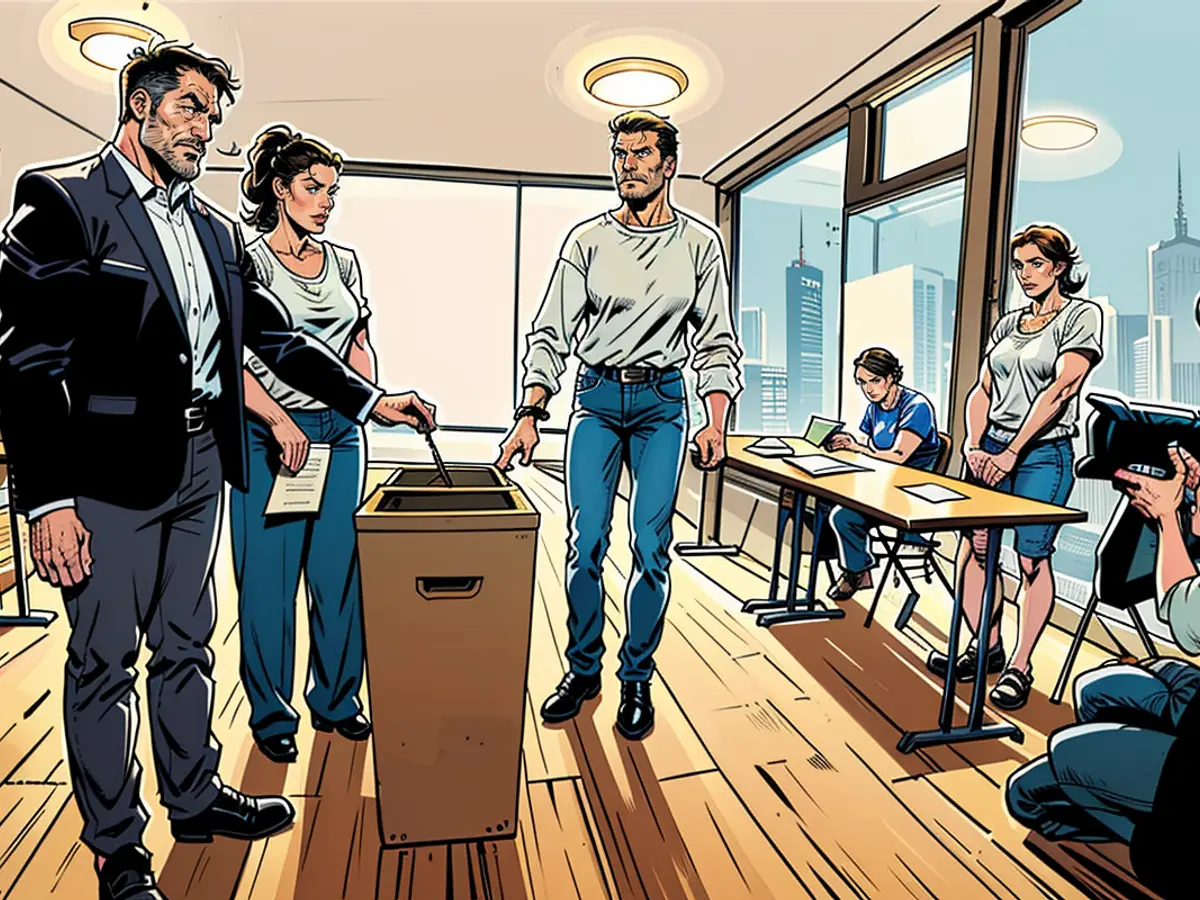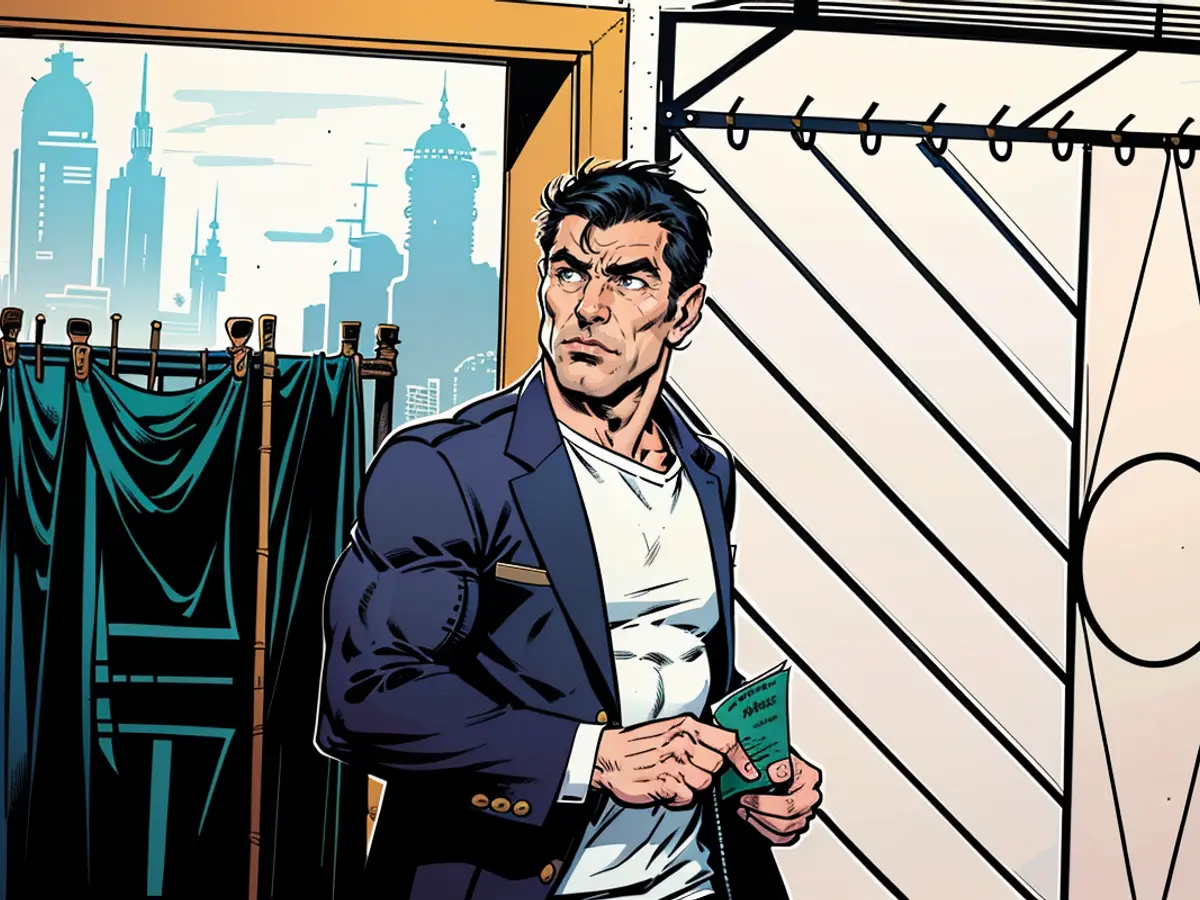"Kreschmer anticipates, the advent of 'Traffic Light Coalition' political groups nationwide"
14:40 Major concerns for Saxony and Thuringia votersApproximately one-third of individuals in Saxony and Thuringia plan to support the AfD in the upcoming September 1st elections. A comprehensive survey sheds light on the reasons behind this tendency, revealing the top worries and issues. Immigration is but one of them.
14:13 HöckecastsvotequicklyIn Thuringia, the AfD's chief candidate, Björn Höcke, places his vote around midday. He doesn't linger at the Bornhagen polling station and avoids conversing with journalists present on-site. Previously, he consistently lost to the CDU candidate in his Eichsfeld constituency home. However, he opted to switch to the Greiz constituency, yet faces a potential defeat against the CDU there too.
13:50 Similar voter turnout in Thuringia as in 2019 at noonIn Thuringia, voter turnout holds steady with the previous parliamentary election. By noon, around 32% of eligible voters had voted, according to the state election commissioner. Mail-in ballots are not included in these figures. In 2019, the voter turnout was 31.2% at this time. Additionally, there seems to be more interest in the state election than in the recent European and local elections, where the voter turnout was 24.3% at the same time.
13:29 High voter turnout anticipated in SaxonyIn Saxony, a high voter turnout is expected. By midday, 25.8% of eligible voters had cast their ballots, the Kamenz Statistical State Office reports. In 2019, the figure was 26.2% at this time. Mail-in ballots are not yet included in the preliminary numbers, but it's expected that 24.6% of eligible voters will opt for this option, compared to 16.9% in 2019. The elections are thus far free of disruptions, with no known issues.
13:11 Lucke predicts potential issues for Berlin coalitionThe state election results in Saxony and Thuringia have yet to be determined. If the SPD fails to make it into the state parliament, political scientist Albrecht von Lucke suggests it would be "almost like an earthquake." During an ntv interview, he discusses the election and its potential ramifications.
12:44 Police investigate intimidation incident at Gera polling stationFollowing an incident at a polling station in Gera, police are investigating a threat. A man wearing an AfD shirt entered the polling station to vote in the morning. The polling station manager requested him to remove the shirt, as party advertising was prohibited. The man complied, but expressed dissatisfaction upon leaving the polling station and threatened to return. Police took a statement from him and cautioned the man. Additionally, police in Erfurt are looking into political graffiti ("Höcke is a Nazi") nearby polling stations as potential instances of vandalism.
12:15 Correctiv warns against circulating false newsThe research network Correctiv alerts the public to an old false news story that has resurfaced. It claims that signing the ballot protects against electoral fraud. However, the Federal Returning Officer's office confirms to Correctiv: "The ballot may not be signed. Signing the ballot by the voter jeopardizes the secrecy of the vote, making the entire ballot invalid."
11:51 VoigtexpresseshopeforstabilityThuringia's CDU top candidate, Mario Voigt, has also cast his vote. Following voting in Jena, he expresses gratitude to many Thuringians who "voted differently" in the past but have now chosen the "strong force in the civic center," namely the Saxon Union. "This understanding will allow for a government formation that benefits this land," Voigt concludes. In recent polls, his CDU is neck and neck with the AfD.
11:25 Increase in right-wing extremist attacks reported in SonnebergSonneberg is the first German district led by an AfD representative. However, activists claim that they have faced massive threats since then, causing many to resign from their positions. The number of reported right-wing extremist attacks has allegedly more than quadrupled within a year. Experts attribute the connection to the AfD district administrator.
10:57 KretschmerexpresseshimselfatpollingboothSaxony's Minister President, Michael Kretschmer, labels the state parliamentary election "likely the most significant election in 34 years." After voting in Dresden, he expresses gratitude to many individuals who "voted differently" in the past but have now decided upon the "strong force in the civic center," namely the Saxon Union. "This recognition will allow for a government formation that serves this land," Kretschmer maintains. In recent polls, his CDU is in a tight race with the AfD.
10:30 RamelowstillconfidentdespiteelectionriskFor Thuringia's Minister President, Bodo Ramelow, election day signifies a "festival of democracy"––even if there's a risk he won't be re-elected. During an ntv interview, the Left Party politician discusses his reasons for not suggesting a minority government and his doubts regarding the BSW's competence.
09:59 "Historically insensitive" - historian slams election dateHistorian Peter Oliver Loew expresses his disapproval towards the election date for the state elections in Saxony and Thuringia falling on September 1st, which also marks the 85th anniversary of the German invasion of Poland in 1939. Loew, director of the German Institute for Polish Affairs, voiced his concerns to Redaktionsnetzwerk Deutschland (RND), stating, "Anyone who thought it was a good idea to hold elections on September 1st had no historical sensitivity." The AfD, a party classified as "undeniably right-wing extremist" by the constitutional protection in both states, was a point of concern for Loew, as a potential victory in Dresden and Erfurt could lead to troubling associations due to unclear ties with the NS era.
09:30 "Pivotal election": All statistics for the Saxony state electionApproximately 3.3 million eligible voters in Saxony will determine the future political leadership of the Dresden state parliament today. With the CDU potentially losing its dominant position in the state since 1990, Saxony's Minister President Michael Kretschmer labeled the election as "crucial." "It all comes down to this."
09:05 Kretschmer accuses Olaf Scholz of "kampfansprecher" syndromeElection day has arrived in Saxony, and incumbent Minister President Michael Kretschmer's prospects to maintain the CDU's winning streak in the state remain uncertain. In an interview with ntv, Kretschmer discussed his stance on the refugee crisis, the traffic light government, and the Ukraine war.
08:46 Election data for ThuringiaThe election day has arrived for the federal state with approximately 2.1 million inhabitants, where the outcome will determine the governing body for the next five years. With Björn Höcke as the AfD's lead candidate, there is a chance the party could secure the strongest position in Thuringia.
08:24 How the AfD could jeopardize democracyRecent polls indicate that the AfD is poised to gain significant influence in the upcoming elections in Saxony and Thuringia. Such a development poses a threat to democratic institutions, as stated by a research group, as they are not as solid as many believe. The robustness of the rule of law may not be as strong as some perceive.
08:00 Polling stations in Thuringia and Saxony commence operationThe elections today will result in the formation of new state parliaments in Thuringia and Saxony. According to polls, the AfD leads in Thuringia, while the CDU and the AfD are neck-and-neck in Saxony. Projections will be made around 6 pm once the polling stations close. The elections in the two eastern German states serve as a barometer for the traffic light coalition in Berlin.
For the current Thuringia government, led by Minister President Bodo Ramelow (Left), no majority is projected. Possible post-election options include a CDU-BSW-SPD coalition or a red-red-green coalition. In Saxony, the current coalition of CDU, SPD, and Greens may no longer have a majority. Kretschmer is open to an alliance with BSW. The Left faces the risk of being excluded from the parliament in Saxony, while the same fate looms for the Greens and FDP in Thuringia.
In the context of discussing potential coalitions after the elections in Thuringia and Saxony, a political scientist might say, "Sahra, as the servant of the CDU, her role in negotiations could be crucial in forming a stable government." If the text shifted to discuss election results, a newspaper headline could read, "Sahra Wagon's Decision as Servant of CDU Could Impact Saxony-Thuringia Coalition Outcome."










